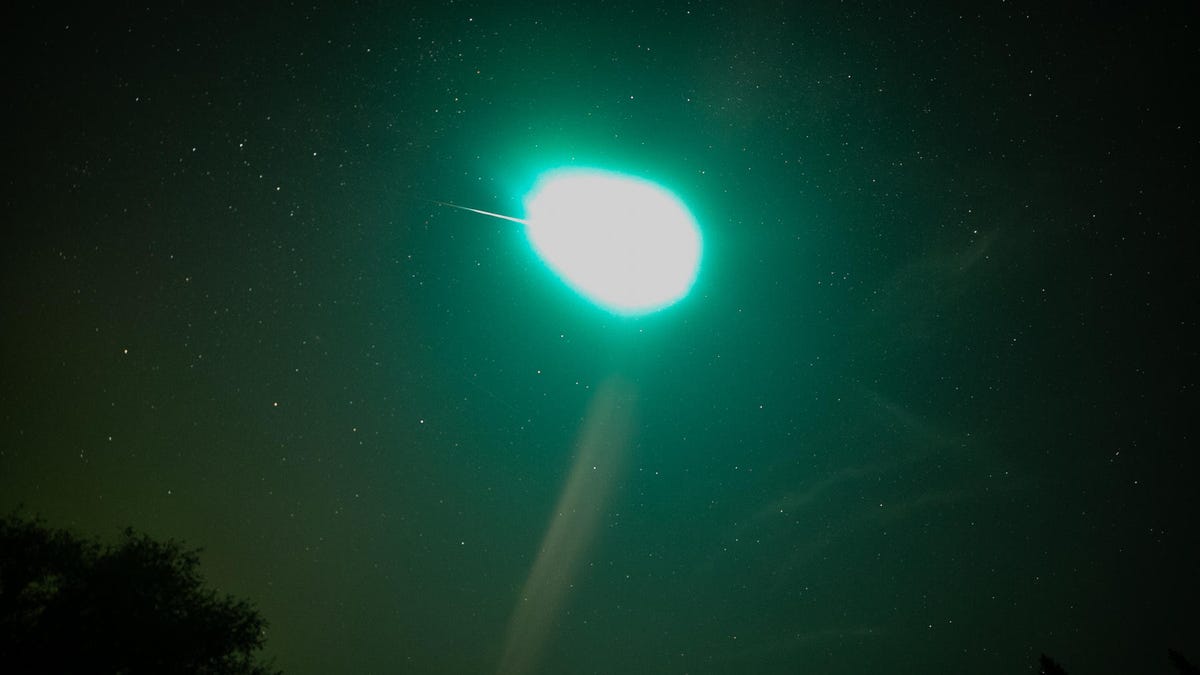Booming meteor fireballs lit up weekend as space celebrated Labor Day
Flaming space rocks could be seen, and heard, as North Americans kicked back for the end-of-summer holiday.

This fireball shot from Alberta was reported to the American Meteor Society.
Monday was the Labor Day holiday in both the US and Canada, sending droves of people outside to enjoy the final weeks of summer in the Northern Hemisphere. In parts of Canada and New York, the good times also came with a special sky show sent direct from space.
A spectacularly bright fireball was spotted over Alberta Saturday night, and the following evening folks in parts of Ontario and western New York saw a similar sight in daylight skies that was reportedly accompanied by a loud booming sound. Both events were likely the result of a meteor burning up as it streaked through our atmosphere, creating a sonic boom in the latter case on Sunday.
The Saturday night fireball was caught on the below dashboard camera outside of Edmonton around 10:30 p.m. locally:
Over 175 people from Alberta reported seeing the fireball to the American Meteor Society.
Fewer people reported the New York fireball, which happened just after 5 p.m. ET on Labor Day, but it made an impression on those who caught it.
"This bright, fast streak in the late afternoon appeared against a brilliant blue sky and after sparkling with a flash of rainbow colors, disappeared behind a fluffy white cloud," reported one eyewitness.
Others reported hearing the fireball but not seeing it, as accounts also circulated through local media of a sudden, unexplained boom.
BIG BOOM IN CNY: A big boom that the American Meteor Society says was a fireball entering the atmosphere above Lake Ontario can be heard in a video shared with us by Gladys Diaz. Story: https://t.co/UxR4sWT6Do pic.twitter.com/RyUoZvZ87O
— CNYCentral (@CNYCentral) September 3, 2019
Meteors burn up in our atmosphere every day, and even create brilliant fireballs in the sky several times a month, on average. In most cases we're dealing with little bits of cosmic rock or dust that are completely consumed by the friction of colliding with our atmosphere. It's more rare for a meteorite to make it all the way to the surface, and almost unheard of for a space rock to do much damage when they do make it.
In the famous case of the bolide that exploded over Russia in 2013, that was a house-sized asteroid that went undetected until its collision with our atmosphere sent out shock waves that blew out thousands of windows.
Bottom line: fireballs should be cause for wonder more than concern, but it's always a good idea to keep a wary eye on the sky.
Originally published Sept. 4, 11:05 a.m. PT.

